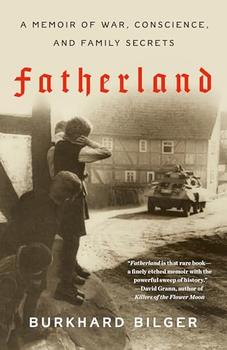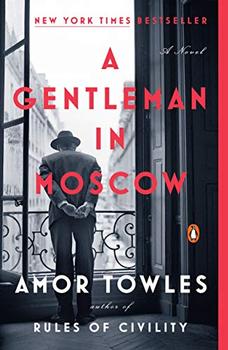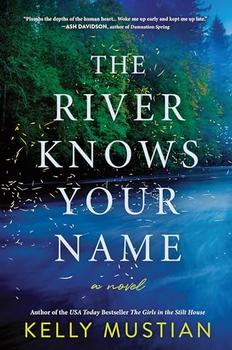Summary | Excerpt | Reading Guide | Reviews | Beyond the book | Read-Alikes | Genres & Themes | Author Bio

Three Generations of Love, War, and Survival
by Owen MatthewsAn indelible portrait of Russia over seven decades and an unforgettable memoir about how we struggle to define ourselves in opposition to our ancestry only to find ourselves aligning with it.
On a midsummer day in 1937, a black car pulled up to a house in Chernigov, in the heart of the Ukraine. Boris Bibikov - Owen Matthews's grandfather - kissed his wife and two young daughters good-bye and disappeared inside the car. His family never saw him again. His wife would soon vanish as well, leaving Lyudmila and Lenina alone to drift across the vast Russian landscape during World War II . Separated as the Germans advanced in 1941, they were miraculously reunited against all odds at the war's end.
Some twenty-five years later, in the early 1960s, Mervyn Matthews - Owen's father - followed a lifelong passion for Russia and moved to Moscow to work for the British embassy. He fell in and out with the KGB, and despite having fallen in love with Lyudmila, he was summarily deported. For the next six years, Mervyn worked day and night to get Lyudmila out of Russia, and when he finally succeeded, they married.
Decades on from these events, Owen Matthews - then a young journalist himself in Russia - came upon his grandfather's KGB file recording his "progress from life to death at the hands of Stalin's secret police." Excited by its revelations, he has pieced together the tangled and dramatic threads of his family's past and present, making sense of the magnetic pull that has drawn him back to his mother's homeland. Stalin's Children is an indelible portrait of Russia over seven decades and an unforgettable memoir about how we struggle to define ourselves in opposition to our ancestry only to find ourselves aligning with it.
The quote featured on the jacket regarding Matthews' inspiration for Stalin's Children is extremely appropriate and neatly summarizes the book's intent. Matthews succeeds admirably in his goal of describing his family's journey from Russia to England and back again, in the process crafting a fascinating history that reads more like a novel than a work of non-fiction...continued
Full Review
(549 words)
This review is available to non-members for a limited time. For full access,
become a member today.
(Reviewed by Kim Kovacs).
The history of Russia and the Soviet Union during the first half of the 20th
century is complex to say the least, characterized by near-constant turmoil. The autocratic
reign of the Tsars came to an end in 1917, sparked by economic hardship
instigated by Russia's involvement in World War I, rapid urban growth, and
the rise of the middle class. Various political parties emerged to vie for
leadership in the ensuing vacuum, with the Bolshevik Party led by Vladimir
Lenin ultimately prevailing. Lenin's death in 1924 led to a power struggle
which left party leadership in the hands of Joseph Stalin.
Stalin's policy of aggressive industrialization led to workers leaving the
farms for employment at the new factories. The...
This "beyond the book" feature is available to non-members for a limited time. Join today for full access.

If you liked Stalin's Children, try these:

by Burkhard Bilger
Published 2024
A New Yorker staff writer investigates his grandfather, a Nazi Party Chief, in this "unflinching, gorgeously written, and deeply moving exploration of morality, family, and war" (Patrick Radden Keefe, author of Empire of Pain).

by Amor Towles
Published 2019
From the New York Times bestselling author of Rules of Civility - a transporting novel about a man who is ordered to spend the rest of his life inside a luxury hotel.



A few books well chosen, and well made use of, will be more profitable than a great confused Alexandrian library.
Click Here to find out who said this, as well as discovering other famous literary quotes!